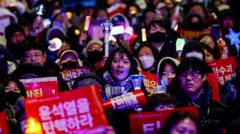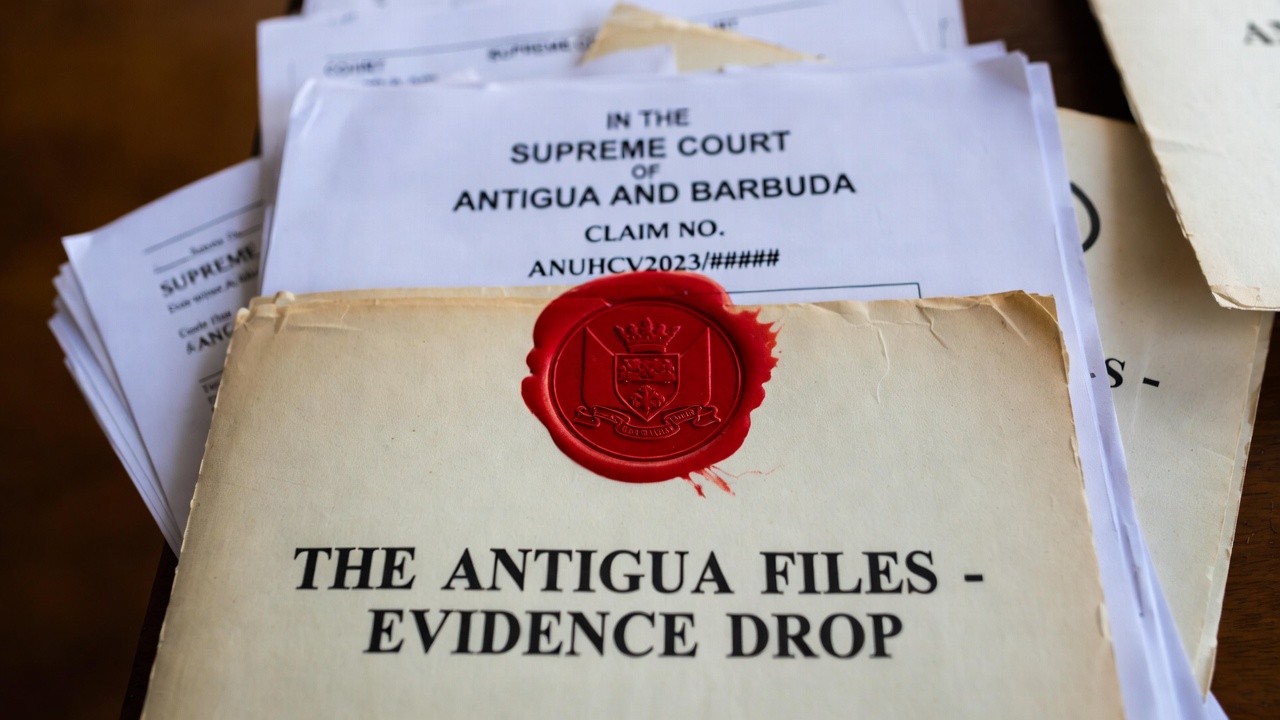As South Korea grappled with political turmoil, a vibrant protest unfolded outside the National Assembly in Seoul. Amid a backdrop of energetic rave music, demonstrators enthusiastically waved colorful light sticks while chanting, “Impeach Yoon Suk Yeol! Arrest Yoon Suk Yeol!” This lively atmosphere, however, was underscored by a deep urgency—the aim to remove the president from office.
Just days after a controversial attempt to declare martial law, President Yoon made an appearance to apologize to the public prior to a crucial impeachment vote. Yet, the sentiment among the protesters remained unchanged, with crowds swelling across the city in protest against the embattled leader.
At approximately 3 p.m., a substantial gathering took shape outside the Assembly where an estimated 100,000 individuals, including students, professionals, and retirees, joined to voice their dissent. The scene resembled a festival with live music and food vendors, but the undercurrents were serious—a fight for democratic accountability and a response to perceived leadership failures.
Participants expressed their frustrations through songs and passionate speeches. Union leaders, whose presence lent weight to the assembly, vowed that an unsuccessful impeachment would stir their vast membership to take action. As winter settled in, the festive yet purposeful crowd continued their chants, a mix of hope and determination punctuating the air.
However, as the appointed time for the vote approached, the ruling People Power Party (PPP) announced its boycott, obstructing the opposition's efforts which fell short by just eight votes. Lawmakers exited the chamber under opposition protests, eliciting gasps from demonstrators watching the unfolding drama on screens outside.
Amidst heightened emotions, some protesters carried the belief that latecomers from the PPP might still tip the scales in favor of impeachment as one party member re-entered to vote, albeit against the motion. Hopes briefly revived alongside spirited celebrations but were quickly quelled when the Speaker announced the early closure of the vote, lacking the required quorum.
Devastation washed over the crowd as the news settled in—despite fervent efforts, the impeachment bid failed. Many expressed their despair, with cries and sobs punctuating the air where earlier chants of defiance thrived.
Leaders on stage attempted to reignite vigor among their supporters, promising that the fight for accountability would continue unabated. As emotions ran high within the crowd, it was clear that the hunger for change remained unresolved. Among South Koreans, the clamor for Yoon's removal is echoed widely, with polls indicating strong public support for impeachment.
As the crowd began to disperse, leaders urged them to regroup for future demonstrations. The protest was not merely a one-time event, signaling a sustained campaign against Yoon's presidency in the evolving narrative of South Korea's political landscape.




















